‘School literature program is a torture’
Teachers and schoolchildren have discussed the problems of literature lessons in the National Library of the Republic of Tatarstan
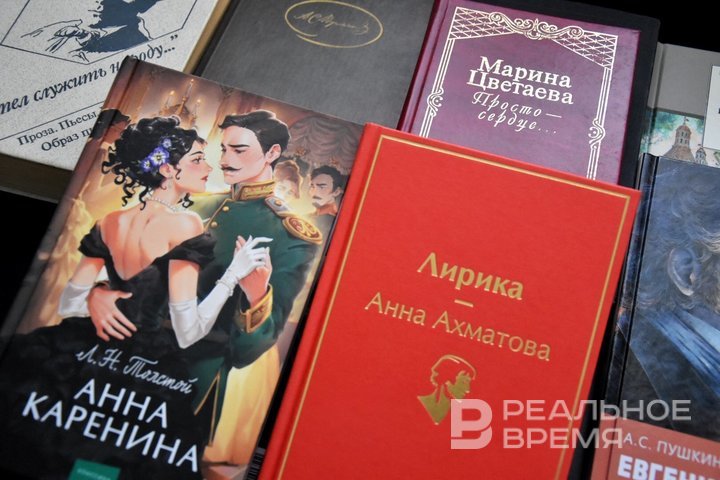
Within the framework of the Novaya Smena children's and youth festival the Smema Deti project, Samokat publishing house and Zhivoy Gorod foundation organised the project “They (do not) read”. The audience, teachers and their students gathered in the National Library of the Republic of Tatarstan. At the suggestion of moderator Julia Kleiman, they talked about which works raise questions, what is the problem with Mumu and why many people stop reading after school. Realnoe Vremya quotes notable fragments from the conversation.
More than half do not like school
The project worked in three cities: discussions and performances. In Yekaterinburg, the Igra Theatre presented a staging of the novel “In the Bundle” by Claire Castillon, while the rural drama and comedy theatre in Fomikha performed a play based on the fairy tale “The River Flowing Backward” by Jean-Claude Mourlevat. In the capital of Tatarstan, director Ildar Khusnullin and playwright Elina Petrova showed a play based on the essay “Like a Novel” by Daniel Pennak at the MOÑ venue.
On December 7, a beautiful literary speech was heard in the exhibition hall of the National Library of the Republic of Tatarstan. Some of the teachers who came could be seen in the play “Pedsovet”, in which real school teachers play. And judging by the remarks, some of the teenagers who came to this conversation are learning from them. A young man named Seva was especially confused when the teacher asked when he would write down his fragment of the poem “Mtsyri”, which they decided to voice in full. In addition, there was a first-year student among the participants, but mostly high school students represented the students.
Before the main conversation, moderator Julia Kleiman conducted a small opinion poll, during which it turned out that more than half of the participants do not like school, but they love comics, but no one believes that there are books that need to be banned. Not everyone reads regularly before going to bed, but almost everyone believes that the school literature programme is a torture.
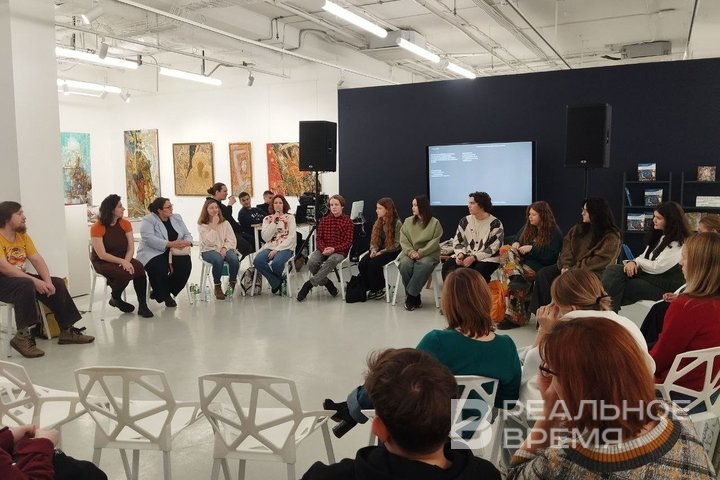
“The school has developed in them an aversion to reading”
The teacher:
“I do not think that the school programme is so torturous. When studying classics, we always have something to discuss with teenagers. We talk about love by reading a number of stories by Chekhov or Kuprin (“About Love”). Children somehow understand what these words are written about and get involved in the discussion. “Romeo and Juliet” also resonates well at the teenage age, not even in terms of the plot, but the language, how one can talk about this complex feeling.
A schoolgirl:
“I encountered the fact that among my acquaintances, there are people who don't read. They don't read mainly because school has developed in them an aversion to reading. For them, reading is torture. The school program is aimed at introducing the student to the cultural background of their country, that is, to give as many famous, good authors as possible, whom a person in the basic cultural code should know. But not all of these works are suitable for teenagers. We teenagers feel very vividly, we feel emotions that are more complex, and we want teenage literature where the guidelines, emotions coincide with ours. There are emotions that we experience without even realising what it is. For example, a complex feeling of love. The child has love for his mother, for his friends. As a teenager, you experience different feelings, books help you understand them.
But such books as, for example, Anna Karenina, War and Peace, the greatest works, I do not argue, but I believe that you need to read not at the age of 16, not at 18, but at 20-25 and beyond. As a matter of fact, my opinion is that the school curriculum needs to be revised according to the age of children, that is, not to give books that are uninteresting, they often discourage the love of reading.
A student:
“School literature should be correlated with the historical context. Of course, you can do the opposite and change history to literature, but I doubt that twelve-year-olds will be able to debate whether communism was good.
They may say to me: but twelve-year-olds also cannot, for example, discuss the topic of literary history. In that case, we can avoid confronting them with such problems and, for example, give them something more age-appropriate. For example, in my school, children in grades 7-8 study first the myths of ancient Greece, then short scary stories (for example, “Coraline in the land of nightmares”), and already in higher grades they begin to get acquainted with works that touch on some eternal themes — love, despotism of power.
Mtsyri and Mumu
A schoolgirl:
“In the 8th grade, we are currently studying the poem “Mtsyri”, which is incomprehensible to most of the students. Because this is 30 pages of poetry, written in a very complex, non-Russian language, these words are not deciphered in the textbook. The meaning itself is unclear. Lermontov wrote this when he was far from his homeland, most of his life he was away from his parents. But when they tell a biography, they don't talk much about it. I want to know why they wrote it, what they felt at that moment.
The teacher:
“Which work should be banned? “Mumu” in the 5th grade. Because the poor fifth graders (I have 38 people) were crying in class because the dog died. How is it possible in the modern world, without explaining to a child what serfdom is, to explain why Gerasim did this? Because he was an enslaved man. They don't know about it. They will learn about 1861 in history in grades 8-9.
The teacher:
“Teaching literature is a very creative process. It often depends entirely on only one person — this is the teacher. If you understand as a teacher that you need to tell about Pushkin, for example, something related to his personal life, some details, and this will help you look at him differently, you tell it. In 5th grade, not everything can be told, of course. In the 11th, it's another matter. You almost have your hands free, because you're dealing with almost adult children. You can tell us a little more about the same duel, about the relationship in the family, and about how Turgenev quarreled with Tolstoy.
All this depends entirely on your teacher. If you want to study a work and associate it with a biography, you can even do it yourself. I think it will be interesting and useful.
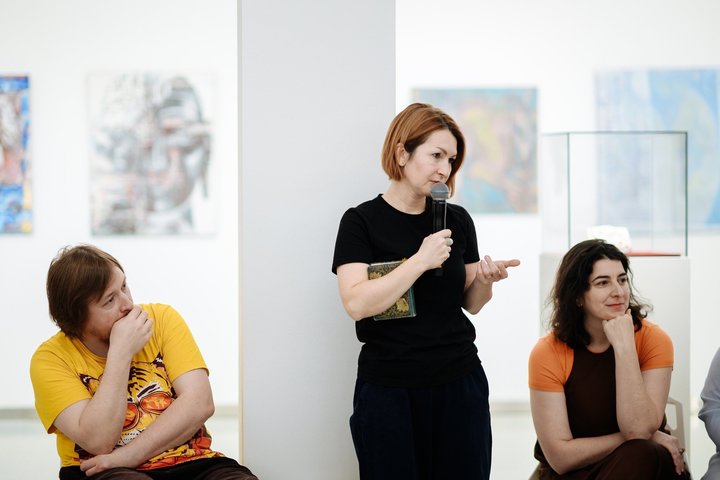
The teacher:
“Children read even more than you and I do. It's just that the content they consume is of a slightly different kind, of a different quality. I understand the poor eighth grader who is faced with “Mtsyri”. We have an idea to record the whole poem. We divided it among the class, and each of us is learning our own part. We first looked at Lermontov as an artist, talked about the fact that the Caucasus played a big role in his life. Then we looked at the “Sitting Demon” and listened to the music that is associated with it. It seems like the children have become more engaged. Perhaps literature should not be taught entirely as a separate subject, it should be associated with art, because literature is part of art.
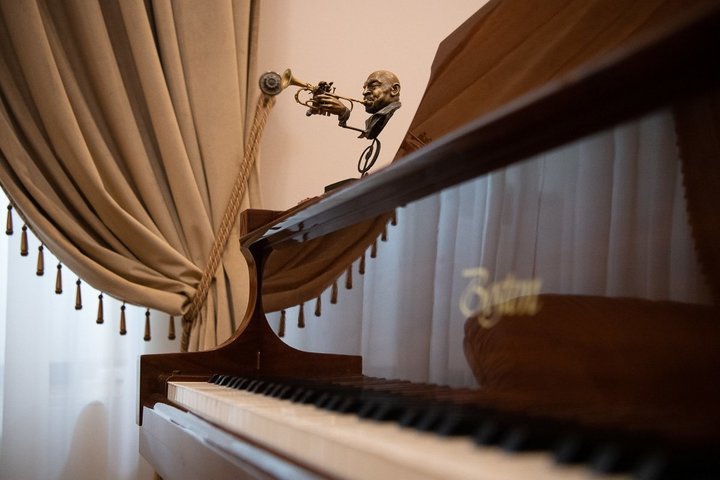
“Children, film a commercial for the next lesson”
The teacher:
“Biographical information and historical information are part of the federal standard for teaching literature. By the way, at the beginning of the year we are now studying foreign literature, moving on to Dubrovsky through Robin Hood.
A student:
“Most teachers try to approach this issue less creatively and either fill up with quotes that will help them in their essay, or try to show the characteristics of the characters and so on. A few show some kind of films, theatrical productions.
For example, talking about the means of expression, arrange a small interactive. Children can take down the advertisement by mentioning what tools they used. It turns out that the approach to teaching literature will be modernised. Because the modern generation is much closer to advertising and other things.

Teacher:
“I am against any literature programme. It is necessary to approach the child as individually as possible, choose books for them. I work with small classes. Sometimes I hit the mark, and the child starts reading because the book is chosen correctly. No programme can cope with this task.
We need to shift the focus from the teacher to the child. A lesson is a theatre of one teacher, where he or she is a programme. And they should look at the child, observe in which direction he is ready to move. And think: what can I give this child?
If you give them the right book... Moreover, this book, from the point of view of a literature teacher, may be completely wrong. But it is correct — from the point of view of the student, it catches him. It is necessary to look for key books for each child.
Literature lessons are structured in such a way that the child knows the authors, the work, the means of artistic expression, and so on. It seems to me that the teacher should shift the focus to trying to make the child read all his life.
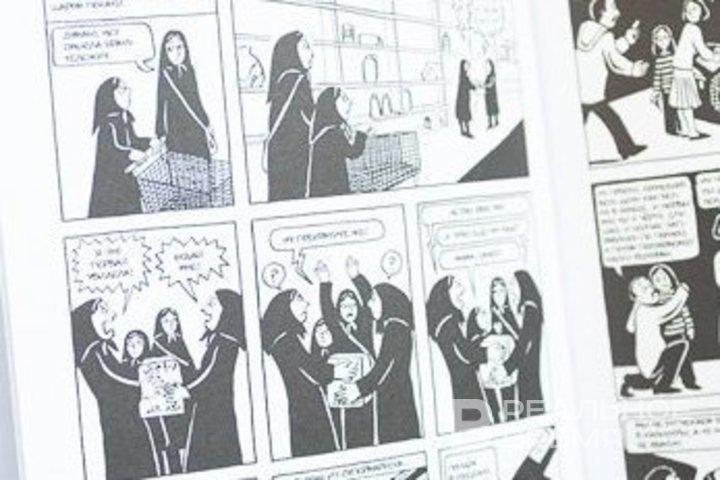
Let's start with the comics
The teacher:
“I had a story about how children read stupid comics based on Minecraft. You can forbid it, say: you will read a good book. The child will stop reading at all. Because he liked the comic. I turned to my parents: there are 14 issues, let everyone buy one, they change. The parents replied: the content is probably stupid. One child stopped there, so he understands the texts. Another began to find comics interesting. The third starts to read more difficult literature.
A schoolgirl:
“Textbooks do not always really correspond to the works. The questions after, for example, are the same: ideas, topics. But this is not the most interesting thing in the work. If you are unlucky with a teacher, it is difficult to figure out for yourself so that it is easy to do, do not go online, do not look for answers, I think it is difficult. And I would like to express my opinion: I am a supporter of classical education. If each school chooses the programme itself, then this can lead to great relief, because many works that are understandable to children will be written in bad language.
The teacher:
“But if the parents don't read, then it's hard to expect the same from the child.”